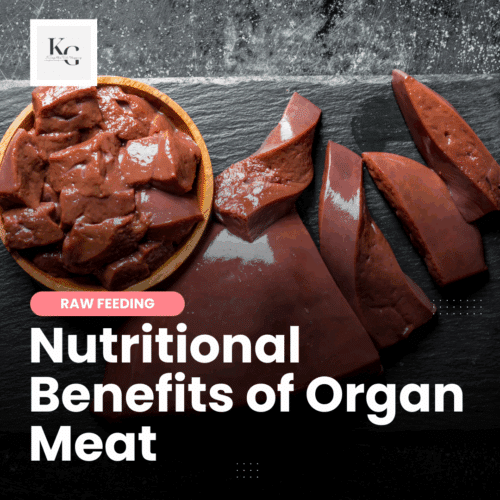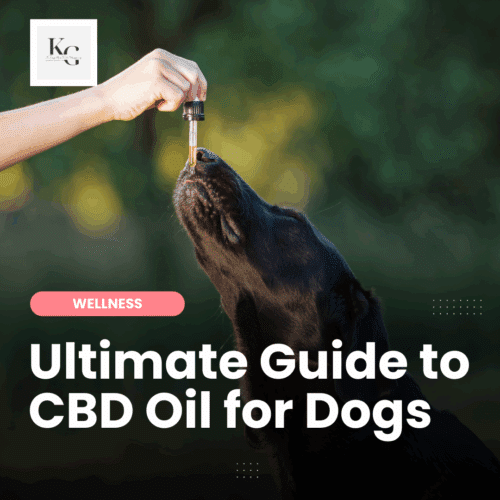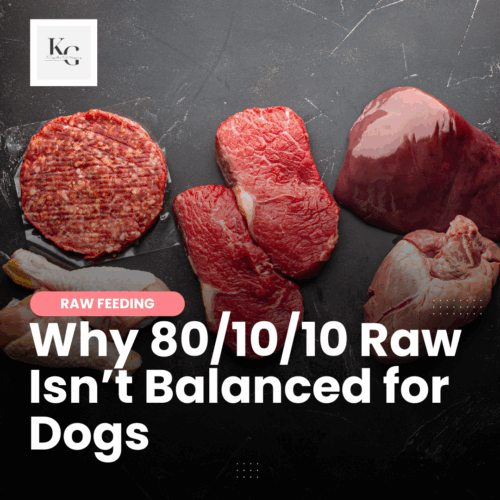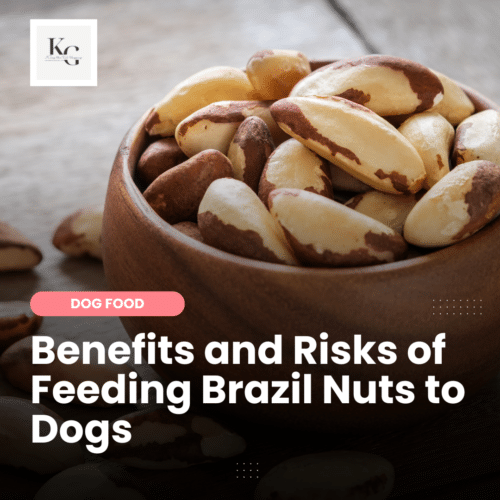Keep the Tail Wagging is supported by pet parents. I occasionally earn a commission (at no additional cost to you) when you click through an affiliate link to one of my favorite products. Thank you for your support. Read More
When I heard about this a week ago, my first feeling was a great well of defeat. It sometimes feels like we're fighting a losing battle against the pet food industry. On one side, we have pet food companies lying about their food and pet bloggers helping them perpetuate those false claims. On the other side, we have the veterinarian community (and folks outside the veterinarian community) perpetuating myths about raw feeding for dogs. And now we have people pushing a vegan diet for dogs and claiming that there is science to back up their claims.
The following is the recording of Commissioner Wolfson's statements uploaded to SoundCloud:
CLICK HERE to download and listen to the full recording of the meeting: http://www.laanimalservices.com/about-us-2/commission/
The following is the request to reject this proposal:
Please notice that this report discusses the feasibility of feeding a vegan diet to a variety of dogs with various health issues; it doesn't simply dismiss the diet because the dogs will poop more, as Commissioner Wolfson states in his testimony.
As you can imagine, this is a hot topic. Still, everyone's passion for and against vegan diets for dogs sparked my curiosity, and now I want to know about the pros and cons of this decision and the motivation of all parties involved.
- Why push human morals on a different species? Why not educate and inspire people to transition to vegan/vegetarian diets?
- If this doesn't save the shelter money (vegan kibble is expensive), what's in it for everyone involved?
- What's in it for the vegan kibble brands supporting this decision to introduce their food to LA shelters?
- Where is the science used to justify switching a carnivore* to a plant-based diet?
*We can argue until the end of the world whether or not dogs are carnivores. My point isn't the title; I believe (and many others) that meat is biologically appropriate for dogs. It's not a vegan diet.
So I Emailed Commissioner Wolfson
Nearly six years as a pet blogger has taught me to keep an open mind, even when I don't initially agree with another person's point of view, so I sent the following email to Commissioner Wolfson:
Good morning…
First, I want to say that I'm a raw feeder. I believe dogs are carnivores, and I don't support vegan or vegetarian diets for dogs. I source all the food I feed my dogs from humane and sustainable farmers in my area. And I'm an aspiring vegetarian because, unlike my dogs, I think I can thrive on a vegetarian diet.
I want to write about what's happening in Los Angeles, but I also don't believe in writing about a topic without having all of the information. I want an opportunity to speak with you about your push to make all dogs in your shelters vegans. Specifically, I would like to know what science you have that proves that dogs will live longer on a vegan diet. I watched your video on Facebook and saw that you mentioned that people adopting vegan dogs would rethink their diet – are you using the dogs to inspire more people to eat a vegan diet? If so, why?
We can speak via email, phone, or on video (which I will upload to YouTube).
Thank you for your time. I hope to hear from you.
Kimberly
Color me surprised when he responded. However, we never set aside time to chat.
Why People are Calling for Vegan Diets for Dogs
According to Commissioner Wolfson, the raising and killing of animals for food is having a disastrous impact on our environment, and many people will agree with this statement. This is why I'm committed to becoming a vegetarian in 2018.
According to Commissioner Wolfson, feeding dogs a meat-based diet in the Los Angeles shelter system costs money and lives. The shelters are spending more than $300,000/year on meat-based dog food; this will not change if they succeed in converting dogs to a vegan diet. What will change is the number of animals being killed for dog food every year:
- 20,000 chickens
- 10,000 turkeys
- 1,000 lambs
However, I see a fallacy in this statement. What type of food are shelter dogs being fed? Speaking with people around the country, not every shelter feeds dogs a high-quality kibble. The lower quality kibbles, which are the most affordable, do not contain a lot of meat, and rarely is meat the first ingredient. They also use meat by-products, the scraps left over after slaughter, and rendered meats. This isn't meat from animals being raised for the pet food industry; this is the garbage left behind after meat has been butchered for human consumption. Some wonder if vegan dog food would be better for dogs.
Commissioner Wolfson, who feeds his dog a vegan diet, believes that feeding meat to dogs isn't healthy for dogs because of the quality of the meat used to make lower-quality kibble. While I agree that this garbage isn't healthy for our dogs, I believe it's a huge leap to conclude that meat isn't healthy for dogs. I'm also not suggesting that shelters should feed raw dog food either.
Science Supporting Vegan Diets for Dogs
From everything I've heard and read so far, it seems like the science that has concluded that a vegan diet is superior to a meat-based diet for dogs boils down to vegan veterinarians, vegan dog parents who feed their dogs a vegan diet, and the owners and employees of vegan dog food companies.
Commissioner Wolfson reviewed studies that were put out by…
- The National Institute of Health – this study is on the ingredients in vegan dog food; this isn't a study that compares the health of dogs on a plant-based diet to the health of dogs on a meat-based diet now or over an extended period.
- American Veterinarian — of Clinical Multimedia Platform – Wolfson stated this one so quickly that I don't think I wrote it down correctly because no amount of searching on Google produced information.
- LA Times – I don't believe that the LA Times conducts scientific studies; however, I did search their site, and while I did find several articles about vegans and vegetarians, I didn't find anything about a study on how dogs will thrive on a vegan diet.
However, I did find plenty of articles that shared the risks of feeding a vegan diet to our dogs:
- DogFoodProject.com – Vegetarian and Vegan Products
- Ron Hines DVM, Ph.D. – I Love You But I Don’t Love You The Way You Are
- Why Animals Do the Thing – Why Vegan Diets Will Kill Your Cat (and Sicken Your Dog)
- TheTruthAboutPetFood.com – Los Angeles County Shelter Dogs to go Vegan?
Is Vegan Dog Food Healthy for Dogs?
As a raw feeder, I'm biased on this topic. I'm not a veterinarian; my knowledge comes from the veterinarians I've worked with on this blog, who have treated my dogs, and canine nutrition courses. Dogs are commonly classified as carnivores, more specifically, facultative carnivores. And most dog owners agree that a meat-based diet is biologically appropriate for dogs.
The reason I don't think a vegan diet is healthy for dogs is that:
(1) I believe that the high glycemic load of a diet of grains and starches will harm a dog's health.
(2) I believe that a high-carb diet (44% and higher when I did the math on a few brands) will result in constant insulin spikes, leading to increased fat stores in the body as insulin works over time. This increased fat storage and decreased fat burning leads to overweight dogs.
Amount of Carbs in V-Dog Vegan Dog Food: 100 – Protein – Fat – Fiber – Moisture – Ash = Carbohydrates
100 – 24 (Protein) – 9 (Fat) – 5 (Fiber) – 10 (Moisture) – 8 (Ash*) = 44% Carbohydrates
*The foods I studied didn't list Ash in their guaranteed analysis; therefore, I used 8% as an estimate per my research.
(3) I believe that the increased grains and starches in a vegan diet act as food for unhealthy bacteria in the gut. Remember, healthy gut, healthy dog. As a person who is raising a dog with a compromised digestive system, it took years to get Rodrigo's gut health turned around. During that time, he experienced loads of health issues because his immune system was also compromised (the gut and the immune system work together).
(4) I believe that the only way to feed a dog a balanced vegan diet is to add synthetic nutrients that can harm some dogs. I have seen first-hand the impact of synthetic nutrients on my dog, Rodrigo. I spent lots of money on vet visits until I realized that Rodrigo could only eat premade raw from brands that used all-natural ingredients.
Obesity, diabetes, digestive issues, and cancer are common health issues dog parents are seeing. How will feeding a vegan diet help? And, if I'm being open-minded, I have to wonder how a vegan diet will compare to feeding the lowest quality kibble on the market.
However, because I'm not a veterinarian or a nutritionist, I thought I would share videos from people who are a lot smarter and more experienced than I am in canine nutrition to share their thoughts on plant-based diets for dogs. And to be more balanced, I've also included two pro-vegan videos.
Veterinarian thoughts on vegan diets for dogs…
- Dr. Judy Morgan
- Dr. Laurie Coger
- Dr. Karen Becker (1), Dr. Becker (2)
- Rodney Habib
- Susan Pitcairns
- Dr. Armaiti May
My Interview with Armaiti May, DVM
Dogs aren’t omnivores. They are facultative carnivores. However, if they were omnivores and have evolved to eat carbs and vegetables, this doesn’t mean they thrive on a vegan diet.
The Border Collie Bramble doesn’t prove that a vegan diet is better for dogs. There are many reasons why Bramble lived to be 25 or 27 years old – good genes, environment, a high-fat diet, daily exercise, eating once a day (daily fast), and diet – or a combination of everything.
There is no proof that vegan diets have a calming effect on aggressive individuals. It’s too far of a stretch to compare a few humans in the prison system to thousands of dogs in the shelter system. The shelter environment is high-stress, and dogs and humans are different species and will react to a vegan diet differently.
Chicken meal doesn’t always come from throwaway, low-quality, tainted meat. Chicken meal is chicken without water. It’s important to contact a brand to find out what parts of the chicken are being used.
Animal lives will not be saved if the shelter system switches to a vegan diet. The animals used to make kibble will still die; Canidae isn’t closing down because of this change.
Non-GMO vegetables and grains do not reduce the likelihood of cancer. My question about the high-carb diet feeding cancer in high-risk dogs wasn’t answered; instead, I was told that the ingredients are non-GMO. Carbs are carbs, and they all break down into sugar, which feeds tumors.
Anecdotal evidence isn’t’ science. The group proposing this diet change sites thousands of dogs doing well on a vegan diet. Thousands of dogs aren’t science or a study. A 10-week study of sledding dogs isn’t a proper study. Where is the bloodwork before and after the diet change to show a positive change? What about six months later and 12 months later? Mentioning a few dogs that are outliers (there will always be exceptions to the rule) is not science or a study.
So What Should We Feed Our Shelter Dogs?
When it comes to our shelter dogs, I'm torn. While I don't believe that a vegan diet for our dogs is the right path, many people have pointed out that vegan dog food may be better than some low-quality dog foods on the market that are being donated to shelters.
Yes, those low-quality dog foods contain meat, but it's low-quality meat (rendered, 3D, 4D, not fit for human consumption). These foods have high amounts of grains and starches, and there are kibble brands that are up to 60% carbs. Wow! Commissioner Wolfson mentioned Canidae and inferred they produce low-quality kibble; I'm afraid I have to disagree.
So what do we do?
We need to remember our economics lessons – supply and demand. While kibble isn't the best food for dogs, it's the most convenient and affordable way to feed shelter dogs. Therefore, we need more high-quality kibble brands to step up and offer their food to shelters. We need donors to provide big bags of higher-quality kibble. We need to help shelters reach a place where they can complete permanent (quality) adoptions quickly while reducing the number of homeless dogs.
Also read: Can Dogs Thrive on a Vegan Diet
Read More About Raw Feeding for Dogs
- The Nutritional Benefits of Organ Meat for Raw Fed Dogs
- Are You New to Raw? Here are the Basics
- The Pros and Cons of Raw Feeding for Dogs
- Why the 80/10/10 Raw Food Diet Isn't Balanced for Dogs
- What Every Dog Owner Should Know About Rotational MonoFeeding



















The difference, in my opinion, is training our dogs so that they have a better, safer life – a poorly behaved dog is libel to wind up in the shelter system to be euthanized, where a well behaved dog will be easier to place in a home. I respect your opinion about humans placing their standards on dogs, I just don’t agree that these are the same things.
In my opinion, using my guilt over the factory farming system to force a facultative carnivore to be a herbivore is cruelty to animals. I, on the other hand, am not a carnivore. It has been proven for centuries that I don’t need meat to survive so I have greatly decreased the meat in my diet. I think that’s the way it should be – if I have an issue with an industry, then I look to myself to make sure I’m not supporting that industry. If someone has an issue with people or animals eating meat, then they shouldn’t have pets that need meat to survive. What’s next? Can we expect to see people demand zoos and wildlife habitats to switch lions to a vegan kibble?
Thank you for sharing your thoughts.
I just do not understand the hypocrisy when people argue about imposing personal/moral beliefs on dogs in the form of vegan diet. Humans already are doing that – by controlling and imposing human habitats and lifestyles on dogs. You are already imposing your moral beliefs when you tell your dog where to poop, where not to; when you ask him/her to be “well-behaved” by your moral definition; when you spay/neuter him/her; I can go on and on. Dogs are omnivores – not carnivores. They have already lost their wild-lineage characteristics in the thousands of years of domestication.
When you are able to find a well-balanced plant/grain based diet that meets the dietary needs, why play the moral card to promote meat based diets that involve killing of other animals? It screams double standards.
Compelling thought, however, at some time, I think we have to look at the animals as if they’re animals. If we, as humans, didn’t interfere in the lives of animals to domesticate them, then would those animals choose a plant-based diet or would they eat the diet that God intended? Take my neighborhood coyotes, for example, they’re adorable and cute – they’re also carnivores that have killed all of my neighbor’s chickens, twice, and have cleared our property of wild rabbits. They also eat the fruit from our trees at the end of the season, however, that’s not their main diet. If food became scarce, they’d eat my dogs too.
My goal in feeding my dogs a meat-based diet is to feed them as God intended. But as I’m delved deeper into the vegan/raw debate, I’ve come to realize that I don’t need to eat a meat-based diet. So I now eat very little meat and I source my dog’s meat from humane farmers. Yes, to some this is an oxymoron, however, I do believe that from the beginning of time, we have raised and slaughtered meat for consumption – it’s the factory farming system that I protest and will not support, hence my choice in sourcing for my dogs’ diet and my decision not eventually transition to a fully vegetarian diet.
Thank you for the respectful comment.
This was an excellent read. Very well put and civilized.
I will like to rebuttal on the point of what type of food to use in animal shelters.
I am a vegan my self, and my take on the point you made is thus.
Why save some animals (dogs) and kill intentionally in cruel/civilized manner other animals – chicken, cows, sheep?
If the answer to that is that is just because they are more humane looking because they are cute and cuddly, but in the same time ignoring the fact both have the same level of consciousness and pain feeling, it is not a very good reason for actively participating in killing an animal and raising it in a life of suffering.
Why make a cute animal live of a suffering of other animals, if there is an option not to do so? Even if it is less healthy by your take – which I am not sure of – nobody lives forever, and should not, if it is on the back of lives and pains of others.
If one believe that a dog like my dog and yours I am sure, is not a cruel animal, and shows affection and love, even to other animals in many examples, when brought up together, I don’t think an animal, if they could understand the choice of their food, would actually choose the cruelty of today mass killings, over plant based food. Healthy of not so healthy. Maybe a cheesy sentimental take, but still I think this.
That is my thought. Thank you for a great post. Very well put and pleasant.
Jesus some people should not be allowed to own a dog
Hi Susan,
Please take these questions in the spirit in which they are delivered. I am truly curious about the logic of feeding a carnivore a vegan diet based on human beliefs/morality.
So you stopped feeding your dog meat initially because of allergies and because of how you feel about animals dying? How do you reconcile your personal morals about animals with raising a dog that should be fed a species appropriate diet of animal proteins? Do you feel that it’s fair to your dog to change his diet because of your beliefs? And why not get a rabbit or another animal that eats vegetables as a species appropriate diet? Why get a dog and turn him into a vegetarian?
And you say that your dog is still itching – have you considered that it’s something in the kibble other than protein that is causing the problem? In looking at the ingredients in vegan kibble, I see a lot of starch/grains which are named as an allergen for dogs.
Fascinating! Because of allergies I recently switched my dog to a vegan kibble, by Petcurean from Canada. And I have been adding either raw vegetables or cooked vegetables. And mixing it with a little bit of canned food either vegetarian or meat just to make sure he has a flavor that he’s familiar with. Today I got some dehydrated raw patties to put on the food instead of the canned, that’s a little better quality per Karen Becker. Also, I bought him some organic raw chicken wings and gave him two the other day as a snack. It took him a while to figure out how to eat them but he got it and I enjoyed listening to the crunch crunch crunch. So, basically I wanted to get away from killing animals for the kibble but still add high quality animal protein knowing that the vegan kibble has all the nutrients he needs and animal protein will be extras at my discretion. He is still itching so it’s a work in progress.